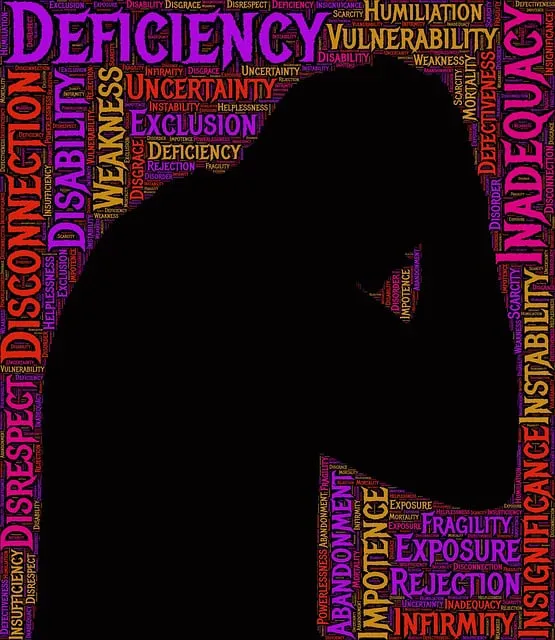The text highlights how mental illness stigma significantly impedes individuals from seeking professional help, as evidenced by studies from Littleton Kaiser Permanente (LKP) psychiatry reviews. To combat this, it advocates for education and awareness campaigns to dispel misconceptions, create supportive environments, and foster trust among patients. LKP's innovative programs, including cultural competency training and community outreach initiatives, successfully reduce stigma, improve patient experiences, and enhance overall well-being.
Mental illness stigma, a significant barrier to seeking treatment, has long been a focus of healthcare reform. This article explores strategies to reduce this societal burden, focusing on efforts detailed in Littleton Kaiser Permanente psychiatry reviews. We delve into the profound impact of stigma on mental health-seeking behaviors and discuss the crucial roles of healthcare providers and community engagement in fostering a more inclusive environment. By examining successful programs, we aim to illuminate innovative approaches that combat stigma effectively.
- Understanding Stigma: Its Impact on Mental Health Seeking Behavior
- The Role of Healthcare Providers in Reducing Stigma
- Community Engagement and Education: A Key Strategy
- Success Stories: Innovative Programs and Their Effectiveness at Littleton Kaiser Permanente Psychiatry Reviews
Understanding Stigma: Its Impact on Mental Health Seeking Behavior

Stigma surrounding mental illness can significantly impact an individual’s willingness to seek help and support for their well-being. Many people struggling with conditions like depression or anxiety often face societal barriers, leading them to conceal their symptoms or avoid professional assistance altogether. This phenomenon is particularly concerning, as early intervention and access to quality care are vital in managing mental health effectively. For instance, according to Littleton Kaiser Permanente psychiatry reviews, the impact of stigma can be profound, causing individuals to delay treatment, experience heightened anxiety around seeking help, and even discourage them from discussing their struggles openly.
Understanding the nature of stigma is crucial in developing strategies for its reduction. Mental illness stigma often stems from misconceptions and fears associated with conditions like depression or trauma. Education and awareness campaigns play a pivotal role in challenging these stereotypes by providing accurate information about mental health. By promoting empathy and understanding, communities can foster an environment where individuals feel supported to seek treatment without fear of judgment. This shift in societal attitude is essential for improving access to mental health services, ensuring better care, and ultimately enhancing the overall well-being of those affected by mental illness.
The Role of Healthcare Providers in Reducing Stigma

Mental illness stigma reduction is a multifaceted effort, and healthcare providers play a pivotal role in this endeavor. At facilities like Littleton Kaiser Permanente, psychiatry reviews highlight the importance of creating supportive environments that encourage open discussions about mental health concerns. Through patient-centered care, healthcare providers can foster trust and reduce the barriers that often prevent individuals from seeking help. By incorporating emotional healing processes into treatment plans, they not only address symptoms but also support whole-being recovery.
Moreover, Healthcare Provider Cultural Competency Training is essential in understanding the diverse nature of mental health experiences across different cultural backgrounds. This training equips professionals with the knowledge and skills to offer empathetic, non-judgmental care that respects individual beliefs and values. By integrating emotional regulation techniques into their practice, healthcare providers can help patients develop coping mechanisms, enhance resilience, and ultimately reduce internalized stigma related to seeking treatment for mental health issues.
Community Engagement and Education: A Key Strategy

In the fight against mental illness stigma, community engagement and education stand as a powerful strategy, exemplified by initiatives like Littleton Kaiser Permanente psychiatry reviews. These programs aim to foster open dialogues about mental health within communities, empowering individuals to recognize signs of distress and offer support without judgment. By hosting workshops, seminars, and awareness campaigns, healthcare professionals can break down barriers and encourage self-care practices that promote overall well-being.
The success of these efforts relies on a comprehensive Community Outreach Program Implementation. This involves tailoring educational content to diverse audiences, collaborating with local schools, workplaces, and community centers to ensure accessibility, and integrating mental health discussions into mainstream conversations. Moreover, integrating Risk Management Planning for Mental Health Professionals can create safer spaces where individuals feel comfortable seeking help without fear of repercussions or stigma.
Success Stories: Innovative Programs and Their Effectiveness at Littleton Kaiser Permanente Psychiatry Reviews

At Littleton Kaiser Permanente psychiatry reviews, success stories abound thanks to innovative programs that challenge mental illness stigma. One standout initiative involves healthcare provider cultural competency training, which equips medical professionals with the skills to offer empathetic, culturally sensitive care. This approach ensures patients feel understood and respected, fostering open dialogue about their emotional healing processes.
Complementing these efforts is a robust Community Outreach Program Implementation designed to bring mental health services directly to diverse communities. By doing so, this program dismantles barriers to care, making resources more accessible. The effectiveness of these initiatives is evident in the positive feedback from patients and healthcare providers alike, demonstrating that stigma reduction can lead to improved treatment outcomes and enhanced community well-being.
Mental illness stigma reduction is a multifaceted approach that involves understanding its profound impact on mental health-seeking behavior, empowering healthcare providers to offer non-stigmatizing care, and engaging communities through education. As evidenced by the success stories highlighted in the Littleton Kaiser Permanente Psychiatry Reviews, community engagement and targeted programs can significantly contribute to destigmatization, fostering a more supportive environment for individuals facing mental health challenges. Continued efforts in these areas are essential to ensuring equitable access to mental healthcare services.






